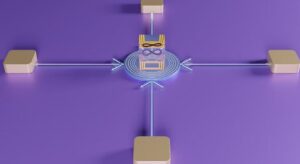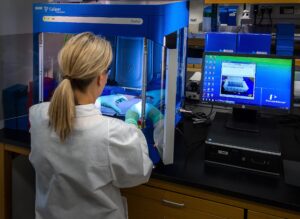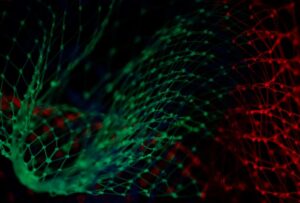
Security Systems and AI: Revolutionizing Protection
In today’s rapidly advancing technological landscape, the need for robust security systems has never been more critical. With the rise in cyber threats, burglaries, and other security breaches, businesses and individuals are increasingly turning to artificial intelligence (AI) to bolster their protection measures. AI-driven security systems offer a multitude of benefits, including advanced threat detection, real-time monitoring, and automated response mechanisms. In this article, we will explore the transformative power of AI in security systems and its potential to revolutionize the way we safeguard our assets.
AI-based security systems leverage machine learning algorithms to analyze vast amounts of data and identify patterns that may indicate potential security risks. This capability enables them to detect threats with unprecedented accuracy, surpassing traditional security methods. By continuously learning from new data, AI systems can adapt and evolve, staying one step ahead of ever-evolving threats.
AI-Powered Security Systems: Revolutionizing Protection and Safeguarding Assets
One of the key advantages of AI-driven security systems is their ability to monitor and analyze large volumes of information in real-time. This real-time monitoring ensures that potential security breaches are detected and addressed immediately. For instance, AI-powered surveillance cameras can continuously analyze live video feeds, instantly recognizing and flagging any suspicious activities. This proactive approach empowers security personnel to respond promptly and minimize potential damage.
Furthermore, AI systems are capable of automating certain security processes, reducing human error and response times. In the event of an alarm trigger, AI algorithms can initiate predefined actions, such as alerting the authorities or activating additional security measures. This automated response mechanism ensures swift and efficient action, minimizing the potential for human oversight or delays.
AI also plays a vital role in enhancing access control systems. Traditional security methods, such as passwords or keycards, are prone to vulnerabilities, as they can be stolen, shared, or forgotten. AI-based biometric authentication systems, on the other hand, utilize unique physiological traits, such as fingerprints or facial recognition, to grant access. These systems offer a higher level of security, as biometric traits are difficult to forge or replicate. Moreover, AI algorithms can continuously learn and adapt to changes in biometric patterns, further enhancing accuracy and security.

In addition to threat detection and access control, AI has revolutionized video analytics. AI-powered video analytics can automatically analyze surveillance footage, detecting suspicious behavior or objects in real-time. For example, these systems can identify unattended bags or recognize abnormal crowd behavior, alerting security personnel to potential threats. By leveraging AI’s image recognition capabilities, security systems can effectively monitor large areas with fewer human resources, reducing costs and enhancing efficiency.
Furthermore, AI can be utilized to secure digital networks and data. With the rise of cloud computing and remote work, protecting sensitive information from cyber threats has become paramount. AI-driven cybersecurity systems can analyze network traffic, identify abnormal patterns, and detect potential breaches or malicious activities. By combining AI’s ability to detect both known and unknown threats, these systems provide an additional layer of defense against cyber attacks, ensuring data integrity and confidentiality.
Despite the numerous benefits of AI in security systems, some concerns have been raised regarding privacy and ethical implications. For instance, facial recognition technology powered by AI raises questions about personal privacy and the potential for misuse. It is crucial for organizations to implement AI systems in compliance with privacy regulations and adopt ethical practices to address these concerns adequately.
In conclusion, AI-driven security systems are transforming the way we protect our assets, both physical and digital. From advanced threat detection and real-time monitoring to automated response mechanisms and enhanced access control, AI offers a wide range of capabilities that significantly enhance security measures. By harnessing the power of machine learning algorithms and data analysis, organizations can stay one step ahead of potential threats and minimize security risks. However, it is important to strike a balance between technological advancements and ethical considerations to ensure the responsible and effective implementation of AI in security systems.
- Unprecedented Threat Detection: AI-powered security systems leverage machine learning algorithms to analyze vast amounts of data, enabling accurate and proactive identification of potential security risks.
- Real-Time Monitoring and Response: With AI, security systems can continuously monitor and analyze information in real-time, ensuring immediate detection and response to potential security breaches.
- Automated Actions for Swift Defense: AI automates security processes, reducing human error and response times by initiating predefined actions, such as alerting authorities or activating additional security measures.
- Enhanced Access Control: AI-based biometric authentication systems, utilizing unique physiological traits like fingerprints or facial recognition, offer advanced and secure access control, surpassing traditional methods.
- Video Analytics for Advanced Surveillance: AI-powered video analytics automatically analyze surveillance footage, detecting suspicious behavior or objects in real-time, enhancing the efficiency and effectiveness of security measures.
- Reinforcing Cybersecurity: AI-driven cybersecurity systems analyze network traffic, identify abnormal patterns, and detect potential breaches, bolstering digital network protection and safeguarding sensitive data.
- Responsible Implementation: While AI offers remarkable benefits, organizations must balance technological advancements with ethical considerations to ensure responsible and effective implementation of AI in security systems.
- The Future of Security: AI’s transformative potential in security systems is reshaping the way we protect our assets, providing unparalleled protection and peace of mind in an ever-evolving threat landscape.
In conclusion, the integration of AI in security systems is revolutionizing the way we protect our assets. The advanced threat detection capabilities, real-time monitoring, and automated response mechanisms offered by AI-driven security systems provide unparalleled protection against various security risks. From enhanced access control utilizing biometric authentication to proactive surveillance through video analytics, AI empowers security measures with efficiency and accuracy.
Moreover, AI contributes to strengthening cybersecurity by analyzing network traffic, identifying anomalies, and mitigating potential breaches. By automating security processes, AI minimizes response times and reduces human error, ensuring swift defense against security threats. Additionally, the cost-effectiveness and operational efficiency of AI-powered security systems make them an attractive choice for businesses and individuals seeking robust protection.
However, ethical considerations and privacy concerns must be addressed when implementing AI in security systems. Striking a balance between technological advancements and responsible practices is crucial to ensure the ethical use of AI and maintain public trust.
As we look to the future, AI will continue to play a significant role in shaping the security landscape. Advancements in machine learning algorithms, data analysis, and AI technologies will further strengthen security systems, providing even more sophisticated and adaptive protection. By embracing AI-powered security systems, we can proactively safeguard our assets and create a safer environment for businesses, individuals, and communities as a whole.







